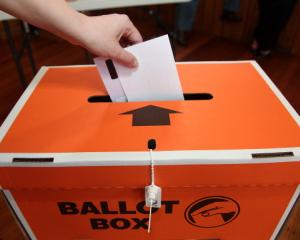The cancellation of secondary school ball after-parties is occurring around the country, including in Dunedin.
There is, at the very least, ambiguity over their legality.
Not surprisingly, schools are wary.
When in doubt, don't is the understandable philosophy.
Columba College's event has been cancelled for today, and it appears other schools, such as John McGlashan College and St Hilda's, are following suit.
Police in the South have rejected suggestions schools were told the parties were illegal, but they have confirmed a new interpretation of the Sale and Supply of Alcohol Act.
After-parties are more difficult to run legally, certainly in their current form, and all is far from clear.
In Canterbury, police wrote to school principals earlier this month, saying anyone organising a ball after-party with an entry fee risked being prosecuted and fined up to $20,000.
The letter stated people who organised, arranged, sold tickets, charged an entry fee and provided security were breaking the law unless they had a special licence to buy and sell alcohol, which was not possible for BYO parties.
And if a licence was secured, it would not apply to under-age drinkers.
It is all becoming too difficult, which is ironic, given police backing and support for properly organised events.
Police have recognised a properly supervised party, with full parental permissions and limited alcohol, is far better than the underground events that could well spring up.
This is rapidly becoming a classic case of good intentions and bad outcomes, where laws and concerns about the harm from mixing alcohol and young people backfires and makes problems worse.
Many pupils will drink after balls, whether in the absence or presence of suitably run parties.
Perhaps the limit of, say, four drinks taken to an organised after-party and given out one drink at a time will be replaced by a dozen drinks rapidly swilled.
Perhaps a garage will take the place of a public hall and there will be no parents present, rather than 20 or 30.
The situation in Ashburton illustrates the foolishness of the changes and the way, rather than making youth safer, risks will increase.
The Ashburton Community Alcohol and Drug Service became involved 17 years ago, because of out-of-control after-parties and the various "dangerous'' consequences of that.
Since then, the service has helped run after-parties for Ashburton and Mt Hutt colleges, with minimal problems.
But this year, because of the ruling that charging for a BYO party breaches liquor laws, the party is off.
Everyone was in one place. Everyone was supervised.
This year, anxious parents are being warned to try to be extra careful where their youth might go after balls and to try to ensure any gatherings are supervised effectively.
Of course, some 16, 17, and 18-year olds will not drink, and some do not take alcohol to after-parties.
That is to be encouraged. In a civilised society, alcohol should not be the centre of attention.
But, realistically, many pupils have drunk heavily in previous generations and do so these days.
The good intentions in the Sale and Supply of Alcohol Act are, in this case, paving the way for worse outcomes.
That, certainly, is the view of Youth justice organisation JustSpeak's co-chairwoman Julia Whaipooti, She said a situation was being created, inadvertently, to drive young people to underground parties where there was less safety and control.
A safe place for young people to drink responsibly, a place with parents in attendance and community engagement, was being taken away.











